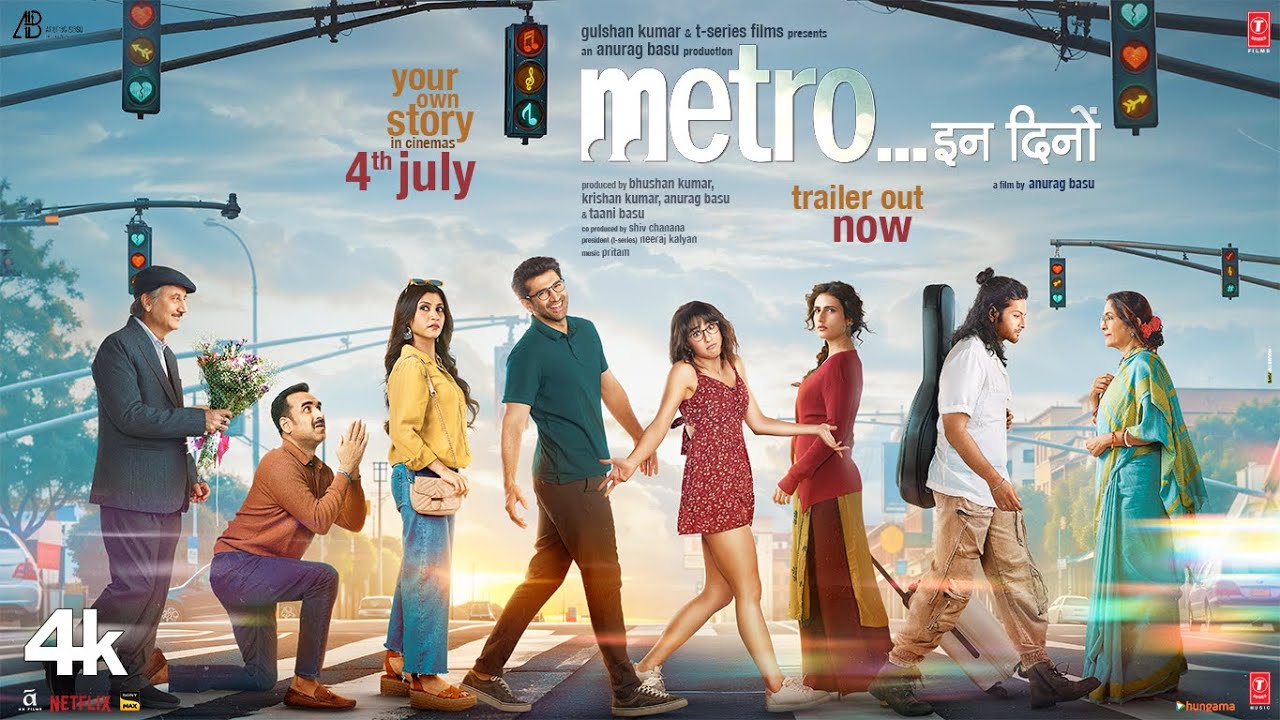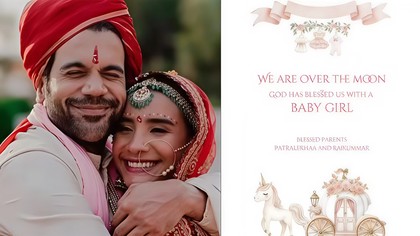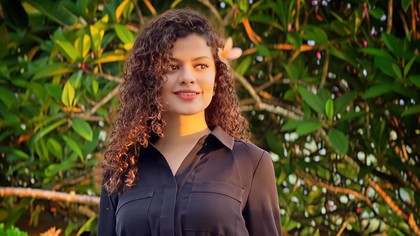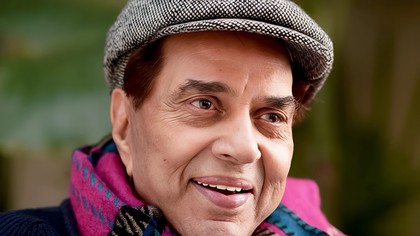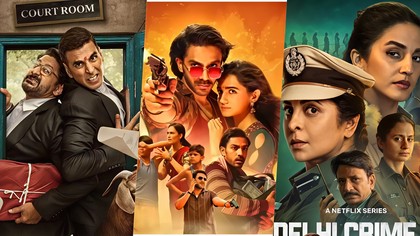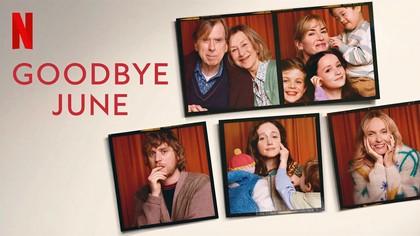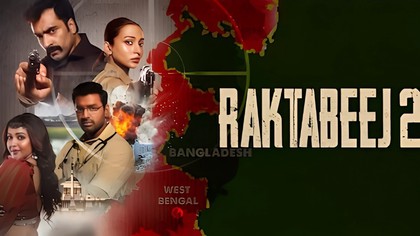Eighteen years after Life In A Metro quietly became a cult urban drama, Anurag Basu revisits the formula in Metro In Dino. And despite the shift in phones, cities, and dating apps, the essence of the film remains strangely familiar. Relationships still crack at the same seams, people still fumble through lust and love, and cities continue to shape who we are. But this time, the mess is bigger, louder, sometimes frustrating, but often deeply human.
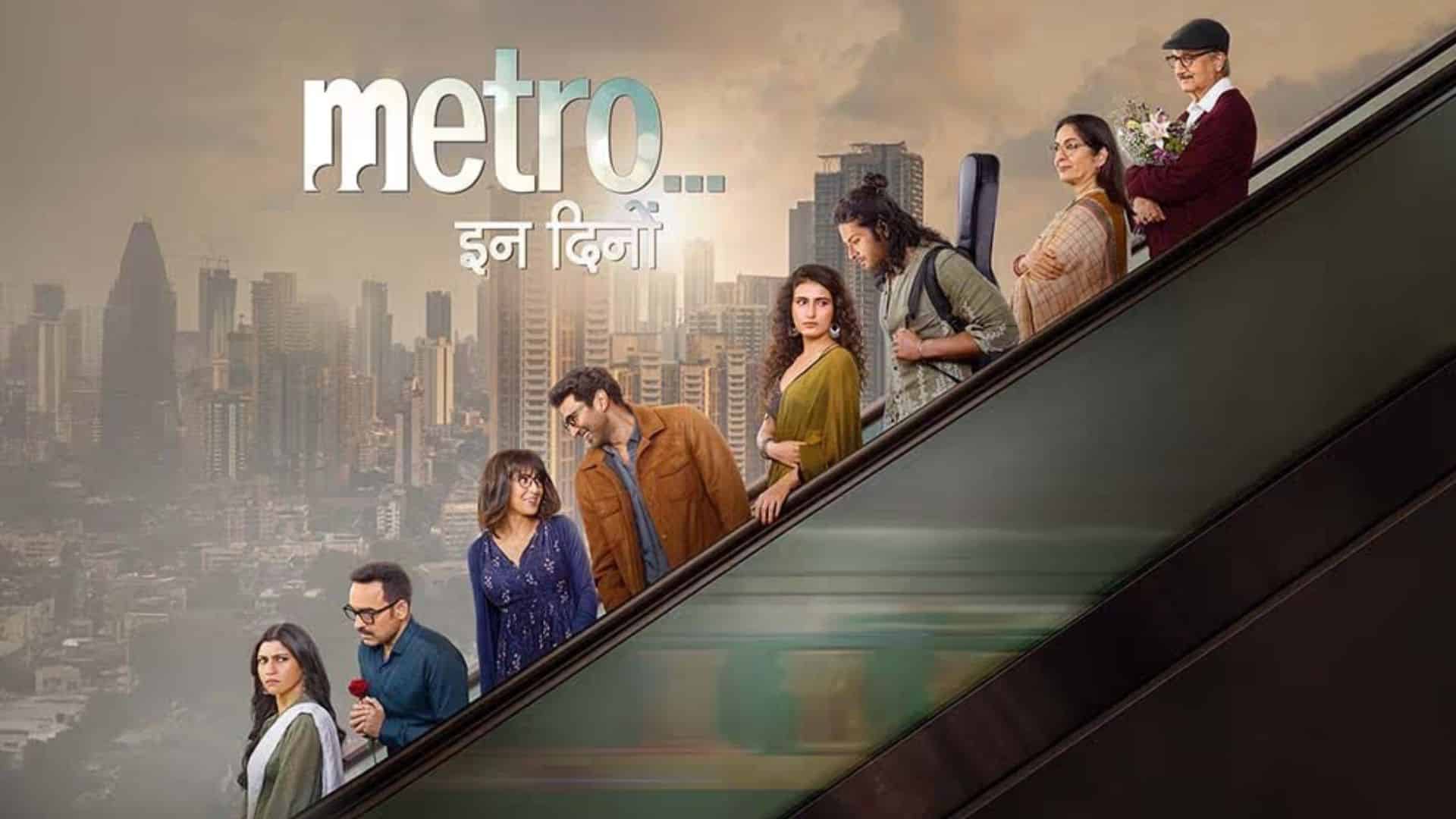
The returning face is Konkona Sen Sharma, reprising her character Kajol in a different phase of life, now paired with Pankaj Tripathi as Monty. Together they depict a married couple not at war, but exhausted into apathy. Tripathi, never shy of comedy or oddball roles, turns the character’s awkward neediness into chaotic charm. He can’t be Irrfan, but he is still oddly affecting, especially in the more exaggerated scenes. Konkona continues to be the quiet heartbeat of the film, anchoring the narrative in emotional realism even as the plot moves between moments of sincerity and burlesque.
Sara Ali Khan delivers her best performance to date, playing Chumki, a confused girlfriend trapped in a relationship with a man more suspicious than supportive. She’s a version of the woman Kareena once played in Jab We Met but filtered through a modern, less romantic lens. Her chemistry with Aditya Roy Kapoor, who plays Parth, a disillusioned travel vlogger, brings the film some of its most easygoing moments. Kapoor isn’t Ranbir Kapoor, Basu’s original muse, but he holds his ground with an understated performance that works better than expected.
Neena Gupta and Anupam Kher share a subplot rooted in nostalgia. She plays Shivani, a mother who once gave up dreams of acting, now facing a second chance. Their college reunion is a sweet escape from the present, even if the storytelling there gets a bit dated. Meanwhile, Fatima Sana Shaikh and Ali Fazal are caught in a modern trap of career versus family. She finds herself unexpectedly pregnant. He wants to make music. What could be a cliché is saved by how delicately Basu treats their dilemmas.
A large ensemble means not all stories are equal. Some threads, like that of a teenager questioning her identity, are modern but undercooked. Others, like the storyline involving Anupam Kher’s widowed daughter in law, feel tonally mismatched. But what keeps the film from falling apart is Basu’s gift for tone. His films operate somewhere between poetry and pop, and even when Metro In Dino meanders, there’s rhythm in the chaos.

What could have been a more powerful film is sometimes held back by its own length and ambition. At nearly three hours, the story overstays its welcome in parts. Scenes repeat themselves. The background music, while lovely, is sometimes overbearing. Pritam’s compositions are soulful, and Papon’s voice is a standout, but the constant visual presence of the band, as in the original, feels like too much this time around.
Still, the film offers a welcome breath of fresh air in an OTT landscape cluttered with jingoism and overly polished melodrama. Basu gives us adults behaving like adults, desiring and dreaming, making mistakes and owning them, in all their flawed glory. There’s something uniquely comforting about watching characters wrestle with real, uncomfortable truths instead of hiding behind formulaic arcs.
Metro In Dino is not perfect. But in its best moments, it gives us small jolts of recognition, the kind that remind us why urban dramas matter. It’s a film that understands cities are not just backgrounds but characters of their own, constantly shifting and shaping the people inside them.
This one doesn’t need to wait another eighteen years for a follow up. It needs a series. Because the lives it wants to tell can’t be tied up in one film.
For more updates on Indian cinema’s most layered stories, follow Binge Moves on Instagram and Facebook.

